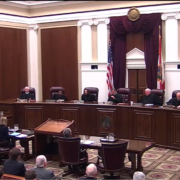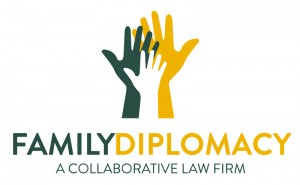This year marked the fifth anniversary of this firm, and also the evolution from a general family law practice as The Law Firm of Adam B. Cordover, P.A., to an exclusively out-of-court practice as Family Diplomacy: A Collaborative Law Firm. We refocused on collaborative divorce and family law, mediation, direct negotiations, and unbundled legal services, and we adopted a new website, FamilyDiplomacy.com, which contained our new blog.
Below you will find the ten most viewed blog posts of the year on FamilyDiplomacy.com:
Number 10
A Low Profile Divorce for High Profile People
We see it in the news and magazines all of the time. Publicly available divorce documents accuse a celebrity of secretly supporting a child born out of wedlock. Sports figures’ assets and judgment become public spectacles. Politicians and their spouses lob accusations at each other for all to see. Businessmen’s private details and dirty laundry end up as front page stories.
Fortunately, your divorce does not need to be in the public eye…
Number 9
Video: Stu Webb’s Collaborative Divorce & Jazz
Now, as it turns out, Stu Webb is not only the founder of collaborative divorce, but he is also an avid fan of Jazz. You can find a short video he helped create comparing collaborative divorce to jazz…
Number 8
Tampa Collaborative Divorce Consultation
Since I opened my law practice, I have received phone calls from potential clients asking if they could bring their spouse to the divorce consultation. Their purpose was to go to a lawyer together, hear the same information, and demonstrate that they are not trying to hire a “pitbull lawyer” or engage in dirty trial tactics. They simply wanted to dissolve their marriage, and they did not want to fight in order to make the divorce happen…
Number 7
Do You Really Need An “Aggressive” Divorce Lawyer?
If you are considering divorce, whether here in Florida or elsewhere, and you are doing online research about family law attorneys, you will come across many firms that describe their attorneys as “aggressive” and “ready to fight for you.”
You will not find that type of language on Family Diplomacy’s website, as we believe that spouses should not be pitted against one another…
Number 6
UFC: Comparing Unified Family Courts with Ultimate Fighting Championship
The range of techniques that are displayed in the Ultimate Fighting Championship are absolutely breathtaking. From jabs to takedowns to flying armbars, each fighter attacks and counterattacks and does whatever he or she can to get the upper hand over the opponent. Similarly, in the Unified Family Courts, opposing attorneys and opposing parties engage in a variety of tactics in an attempt to build up one side and tear down the other…
Read more →



 Rather, when I act as the neutral mediator, I prefer to practice face-to-face mediation.
Rather, when I act as the neutral mediator, I prefer to practice face-to-face mediation.
